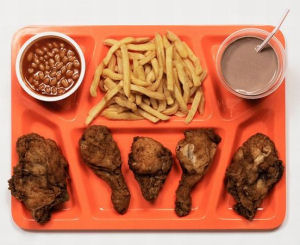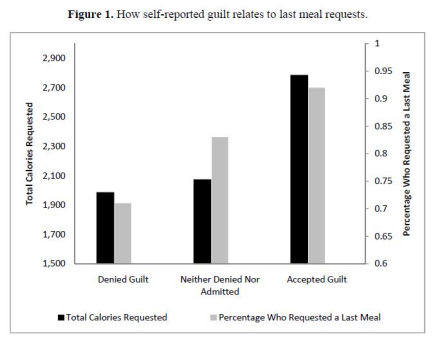28 January 2014
The surprising correlation between guilt and last meals
by Will Parker
 Published in the journal Laws, a new study that examined the last meal choices made by death row inmates found a significant link between the inmate's food selection and their self-perceived guilt or innocence.
Published in the journal Laws, a new study that examined the last meal choices made by death row inmates found a significant link between the inmate's food selection and their self-perceived guilt or innocence.
The study, by Cornell University researcher Kevin Kniffin, examined whether an individual who has accepted guilt - by apologizing or confessing - is more likely to indulge in a last meal. He also looked at how their meals differ from those who maintain that they are innocent.
Kniffin initially hypothesized that those who perceived themselves as innocent would request fewer calories or decline to receive a last meal altogether. After analyzing the last meals of 247 people who were executed in the United States between 2002 and 2006, he found his hypothesis to be accurate.
Specifically, those who denied guilt were 2.7 times more likely to decline a last meal than those who admitted guilt. Furthermore those who were admittedly guilty requested 34 percent more calories of food and were more likely to request brand name, comfort-food items.

"Social circumstance often gives meals meaning, so it is logical that the last meals of those on death row may signify something beyond taste preference," said Kniffin. "While there are many factors that could contribute to last meal selection, this study is the first to provide evidence of a link between food selection and self-perceived guilt or innocence."
Kniffin says the findings may be of use to the legal community in further assessing the innocence and perceived innocence of those who have received the death penalty in the past.
Related:
Discuss this article in our forum
Eye reflections can identify criminals
The prettier the guiltier
New test estimates age from blood sample
Software identifies psychopaths
Source: Cornell University
